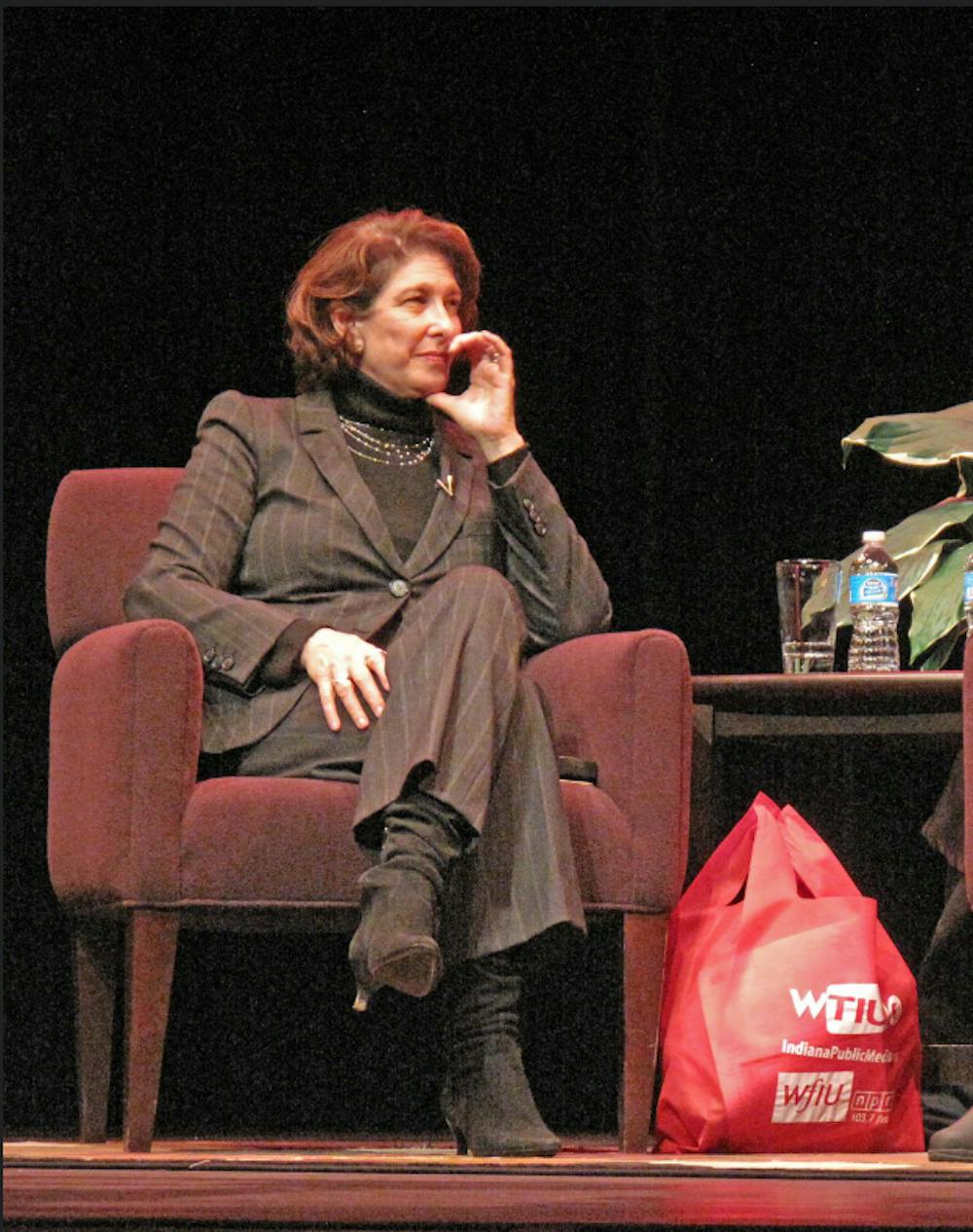This past week, the University hosted NPR correspondent Mara Liasson in a public lecture and private lunch.
Liasson, who has been with NPR for 33 years, has served as a political correspondent, Congressional Correspondent, and White House Correspondent. She is now a contributor for NPR’s All Things Considered and Morning Edition and a correspondent for Fox. On Friday, Feb. 15, Liasson sat down with The Daily Princetonian. Below is a lightly edited transcript of the conversation.
The Daily Princetonian: In your talk, you mentioned all of the women that came before you [in NPR]. Could you talk more about that?
Mara Liasson: I am not a pioneer. The thing to remember is that, back then, NPR had this group of incredible female reporters and anchors — Susan Stamberg, Cokie Roberts, Nina Totenberg, Linda Wertheimer — and we called them the Founding Mothers of NPR, or sometimes we called them the Fallopian Club.
So people say, “Wow, because NPR really valued women?” No, because back then, we [NPR] paid so much less relative to the networks and major newspapers that we ended up with a lot of females, and the men who worked there tended to leave and go to the higher-paying places.
That has changed over time. We are now totally competitive salary-wise. So, it was a confluence of events, and we ended up with a lot of really great women who were in prominent positions there and who helped other women.
DP: Are there challenges that NPR is facing in this era of fake media?
ML: Well, there are challenges that every news organization faces in this post-truth era that we live in. Any news organization that considers itself a fact-based, reality-based, mainstream news organization that tries to be fair and objective and bring in all sides of the story, absolutely, there are challenges.
The problem with fake news is not that so many people believe the fake news — it’s that they stop believing the real news because they don’t know what to believe.

DP: What do you feel is the importance of your job as a journalist?
ML: This is a really confusing time, and this is a time when a lot of things that people took for granted are seemingly tenuous and threatened, like basic democratic institutions, like the idea of the American Dream — that if you work hard and play by the rules and get your kids a good education, they’ll do better than you. There are a lot of things that people believed that are looking really shaky, so our job is to explain what is happening, why it’s happening, [and] try to put it in context.
DP: Do you ever change your talking points?
ML: Never. I’m the exception to the rule of media polarization. I don’t say anything on Fox that I wouldn’t say on NPR.

DP: If you could think about one political topic that people should be paying attention to right now, what would it be?
ML: I think people should go back and give themselves a remedial civics education, which, of course, none of us got because it doesn’t exist anymore in K–12, which is one of my pet peeves. One big takeaway for me from the 2016 election is just how fragile our institutions are. We can’t take them for granted. Certain numbers of people in polls say they want the president impeached. What I’m interested in is how many of those people know that impeachment is not removal?
DP: In the talk, you spoke a lot about Trump’s strategy of deriding Democrats as socialists. Could you comment on that?
ML: Trump is a cultural warrior, and he thinks cultural issues are more important than economic issues. He’s also a marketing guy and a brander, and he believes in branding himself and branding his opponents through repetition. He has decided that the Democrats are a left-wing, radical party. They’re the party of socialism, open borders, late-term abortion, and crime. And that’s how he is going to try to define anybody who becomes the Democratic nominee.
DP: Do you have advice for college students looking to get into journalism and broadcasting?
ML: I think if you’re a hustler and an entrepreneur, and you’re willing to work on every platform, and learn every technology, go for it. I think it’s an incredible craft, but it’s hard because the news industry is very volatile right now, and it’s going through a lot of changes. But we have a tremendous number of super smart, aggressive, hard-working young people at NPR, and I’m assuming that every one of them is going to go onto a great career in journalism if that’s what they want. So I would encourage anybody to go for it, especially if they’re young. You can always do something later.








